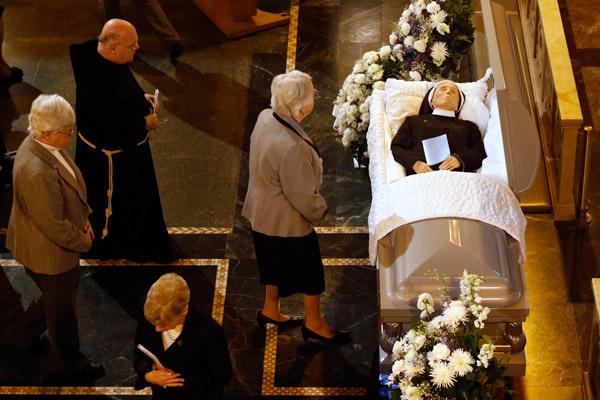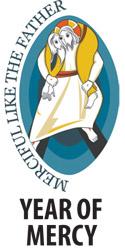

Of the seven corporal works of mercy, only one is not found in Matthew 25:31-46: bury the dead. Why then is it included as one of the works of mercy?
Proper burial of the dead was an important practice in Israel from its earliest days. A common practice was to prepare the body for burial with ointments and spices, and then to wrap the body in a linen cloth before laying it in a tomb, as was done with Jesus (John 19:40).
There the body would decay until only bones remained, and then they would be moved to a permanent burial place where they would be placed with the bones of one’s ancestors.
According to Luke 23:53, Jesus was wrapped in linen and laid in a “rock-hewn tomb in which no one had yet been buried,” but because of the Sabbath, his body had not yet been anointed with the appropriate spices and perfumed oil.
Thus the women returned early in the morning on the first day of the week to finish the burial ritual, only to find the tomb empty.
The importance of proper burial can be seen in Genesis 23 when Abraham, who is then living among the Hittites, purchases a field in which to bury his wife Sarah. Genesis 49:31 informs us that Abraham will also be buried in that tomb, as will Isaac and his wives Lea and Rebekah, and their son, Jacob.
The importance of a proper burial is also seen in the internment of Joshua and the bones of Joseph (Joshua 24:29-33).
Proper burial of the dead was considered so important in Israel that being left unburied was considered a curse and a condemnation.
In Deuteronomy 28:26, where all the curses for disobeying God’s commands are listed, this curse is found: “Your corpses will become food for all the birds of the air and for the beasts of the field, with no one to frighten them off.”
Not to bury someone properly then was a sign of great disrespect and a condemnation.
According to the Book of Tobit, burying the dead was an important work of charity: “I had performed many charitable deeds for my kindred. … I would give my bread to the hungry and clothing to the naked. If I saw one of my people who died and been thrown behind the wall of Nineveh, I used to bury him” (Tobit 1:16-17).
As with all of the works of mercy, what is emphasized here is the importance of compassion for others and the need to treat everyone with the dignity and respect they deserve as people created by a loving God.
Showing love for others, even after death, is how Jesus’ disciples are to show their love for God.
Please read our Comments Policy before posting.
Article comments powered by Disqus What would Christ the King be doing today?
What would Christ the King be doing today?
 Two get state honors for works of mercy in volunteering
Two get state honors for works of mercy in volunteering
 Dog rescue is one way these Catholics care for creation
Dog rescue is one way these Catholics care for creation
 Third work of mercy: Offer love, mercy to admonish sinner
Third work of mercy: Offer love, mercy to admonish sinner
 Spiritual work of mercy: 'Instruct the ignorant'
Spiritual work of mercy: 'Instruct the ignorant'
 Studio 3:16 offers new approach to teaching religion
Studio 3:16 offers new approach to teaching religion
 After three decades, NLR principal plans to retire
After three decades, NLR principal plans to retire
 CHS athlete overcomes odds to reach collegiate goal
CHS athlete overcomes odds to reach collegiate goal
 John Calipari: UA basketball coach and devout Catholic
John Calipari: UA basketball coach and devout Catholic
 'Cabrini' film tells story of saint with great faith
'Cabrini' film tells story of saint with great faith